Sebastien Lafond
CALF: A Conditionally Adaptive Loss Function to Mitigate Class-Imbalanced Segmentation
Apr 06, 2025



Abstract:Imbalanced datasets pose a considerable challenge in training deep learning (DL) models for medical diagnostics, particularly for segmentation tasks. Imbalance may be associated with annotation quality limited annotated datasets, rare cases, or small-scale regions of interest (ROIs). These conditions adversely affect model training and performance, leading to segmentation boundaries which deviate from the true ROIs. Traditional loss functions, such as Binary Cross Entropy, replicate annotation biases and limit model generalization. We propose a novel, statistically driven, conditionally adaptive loss function (CALF) tailored to accommodate the conditions of imbalanced datasets in DL training. It employs a data-driven methodology by estimating imbalance severity using statistical methods of skewness and kurtosis, then applies an appropriate transformation to balance the training dataset while preserving data heterogeneity. This transformative approach integrates a multifaceted process, encompassing preprocessing, dataset filtering, and dynamic loss selection to achieve optimal outcomes. We benchmark our method against conventional loss functions using qualitative and quantitative evaluations. Experiments using large-scale open-source datasets (i.e., UPENN-GBM, UCSF, LGG, and BraTS) validate our approach, demonstrating substantial segmentation improvements. Code availability: https://anonymous.4open.science/r/MICCAI-Submission-43F9/.
Identifying gender bias in blockbuster movies through the lens of machine learning
Nov 21, 2022Abstract:The problem of gender bias is highly prevalent and well known. In this paper, we have analysed the portrayal of gender roles in English movies, a medium that effectively influences society in shaping people's beliefs and opinions. First, we gathered scripts of films from different genres and derived sentiments and emotions using natural language processing techniques. Afterwards, we converted the scripts into embeddings, i.e. a way of representing text in the form of vectors. With a thorough investigation, we found specific patterns in male and female characters' personality traits in movies that align with societal stereotypes. Furthermore, we used mathematical and machine learning techniques and found some biases wherein men are shown to be more dominant and envious than women, whereas women have more joyful roles in movies. In our work, we introduce, to the best of our knowledge, a novel technique to convert dialogues into an array of emotions by combining it with Plutchik's wheel of emotions. Our study aims to encourage reflections on gender equality in the domain of film and facilitate other researchers in analysing movies automatically instead of using manual approaches.
Data Collection and Acceleration Infrastructure for FPGA-based Edge AI Applications
Mar 11, 2021
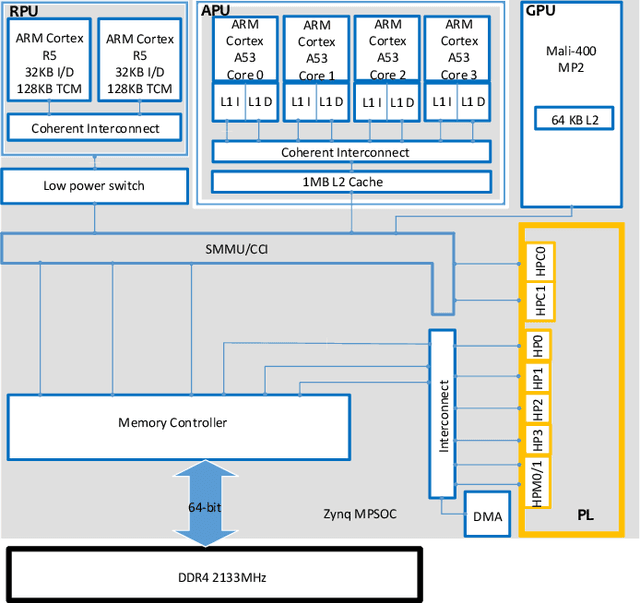
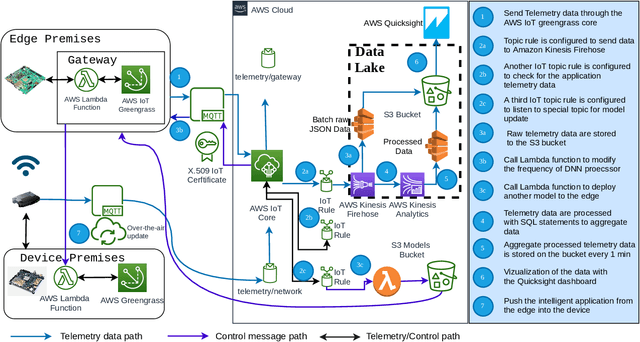
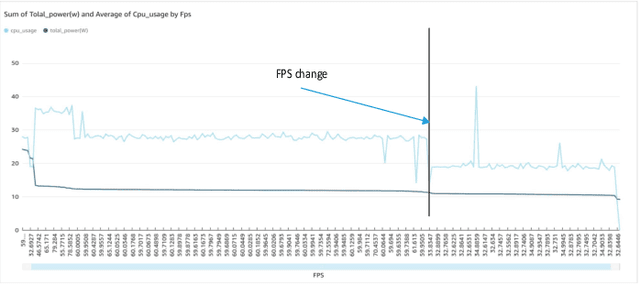
Abstract:As data being produced by IoT applications continues to explode, there's a growing need to bring computing power closer to the source of the data to meet the response-time, power-consumption and cost goals of performance-critical applications like Industrial Internet of Things (IIoT), Automated Driving, Medical Imaging or Surveillance among others. This paper proposes a FPGA-based data collection and utilization framework that allows runtime platform and application data to be sent to an edge and cloud system via data collection agents running close to the platform. Agents are connected to a cloud system able to train AI models to improve overall energy efficiency of an AI application executed on a FPGA-based edge platform. In the implementation part we show that it is feasible to collect relevant data from an FPGA platform, transmit the data to a cloud system for processing and receiving feedback actions to execute an edge AI application energy efficiently. As future work we foresee the possibility to train, deploy and continuously improve a base model able to efficiently adapt the execution of edge applications.
Evolutionary computational platform for the automatic discovery of nanocarriers for cancer treatment
Feb 01, 2021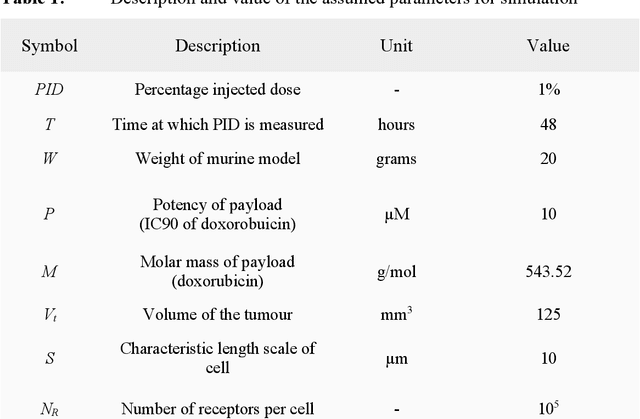
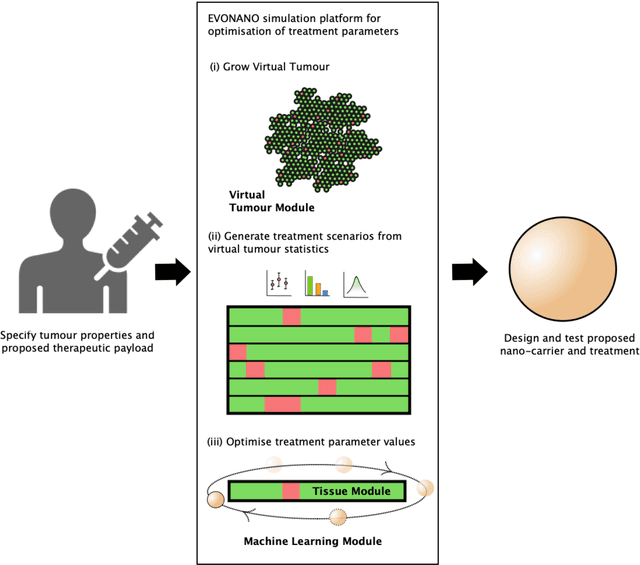
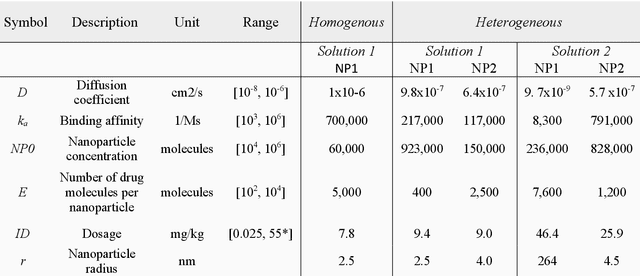
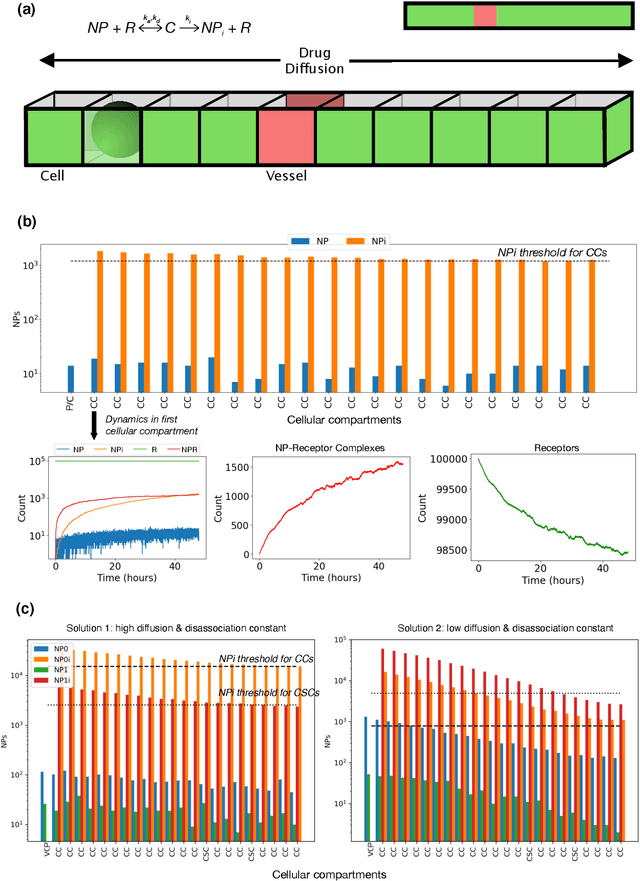
Abstract:We present the EVONANO platform for the evolution of nanomedicines with application to anti-cancer treatments. EVONANO includes a simulator to grow tumours, extract representative scenarios, and then simulate nanoparticle transport through these scenarios to predict nanoparticle distribution. The nanoparticle designs are optimised using machine learning to efficiently find the most effective anti-cancer treatments. We demonstrate our platform with two examples optimising the properties of nanoparticles and treatment to selectively kill cancer cells over a range of tumour environments.
 Add to Chrome
Add to Chrome Add to Firefox
Add to Firefox Add to Edge
Add to Edge